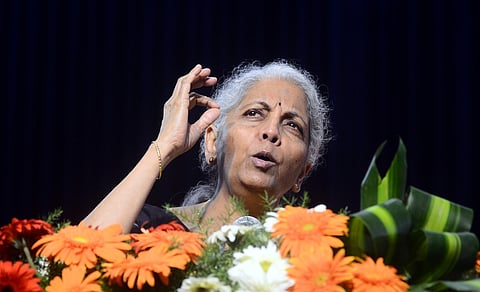

BENGALURU: Given the present heightened tensions between India and Pakistan, cybersecurity experts say cyberattacks can be used to disrupt infrastructure, adding that organisations should adopt a proactive and layered approach to security.
On Friday, Finance Minister Nirmala Sitharaman directed banks to conduct regular audits of their cybersecurity systems and data centres and ensure that all digital and core banking infrastructure is fully firewalled and monitored round the clock to prevent breaches or any hostile cyber activity.
Neehar Pathare, MD, CEO and CIO, 63SATS Cybertech, said that while traditional warfare has long been defined by physical confrontations, modern conflict is increasingly being waged in the digital domain.
The Ukraine conflict and the Israel-Hamas war have both demonstrated how cyberattacks can be used to disrupt vital infrastructure, manipulate narratives, and destabilise entire nations. "We’re now seeing a dangerous escalation—where hacktivist groups and state-aligned actors routinely target military systems, government agencies, and critical services,” Pathare said.
"Recently, a Pakistani group calling itself 'IOK Hacker' launched a cyber offensive against the Indian Army, disrupting platforms like Army Public School Srinagar’s website through DDoS attacks, and attempting to breach the Army Welfare Housing Organisation and the Indian Air Force placement portal," he said, adding these attacks are only going to increase in frequency and sophistication.
Cybersecurity and cloud computing company Akamai said it is closely monitoring the notable increase in cyber activity affecting organisations across India, including Distributed Denial-of-Service (DDoS) attempts and the use of malicious files in targeted campaigns.
"Measures like always-on DDoS protection, zero trust architecture, and advanced file inspection are no longer optional — they are foundational. In times of geopolitical uncertainty, a strong and resilient cybersecurity posture is critical to safeguarding digital assets and maintaining operational continuity," Mitesh Jain, Regional VP of Akamai said.
At the meeting with the FM on Friday, Bank MDs and CEOs informed that anti-DDoS (Distributed Denial-of-Service) systems have been implemented to protect against massive cyber-attacks.
FM Sitharaman also instructed banks to designate two dedicated senior officials -- one for reporting all cyber-related matters and the other to ensure operational matters. She said both dedicated officers should report any incident to CERT-In / relevant agencies and DFS on a real-time basis.
Critical infrastructure like finance, healthcare, and energy are increasingly at risk. These attacks don’t come with warning shots - they exploit misconfigured APIs (application programming interfaces), zero-day vulnerabilities, or unprotected endpoints, often before anyone realises there’s a breach, said Keith Odom, EVP – Consulting & Services, AHEAD.
Given that 28% of new vulnerabilities are exploited the same day they’re published, organisations must shift from periodic checks to continuous security.
A fully managed WAAP (web application and API protection) model ensures 24×7 visibility and faster response, which is critical in politically sensitive periods, said Ashish Tandon, Founder and CEO, Indusface.